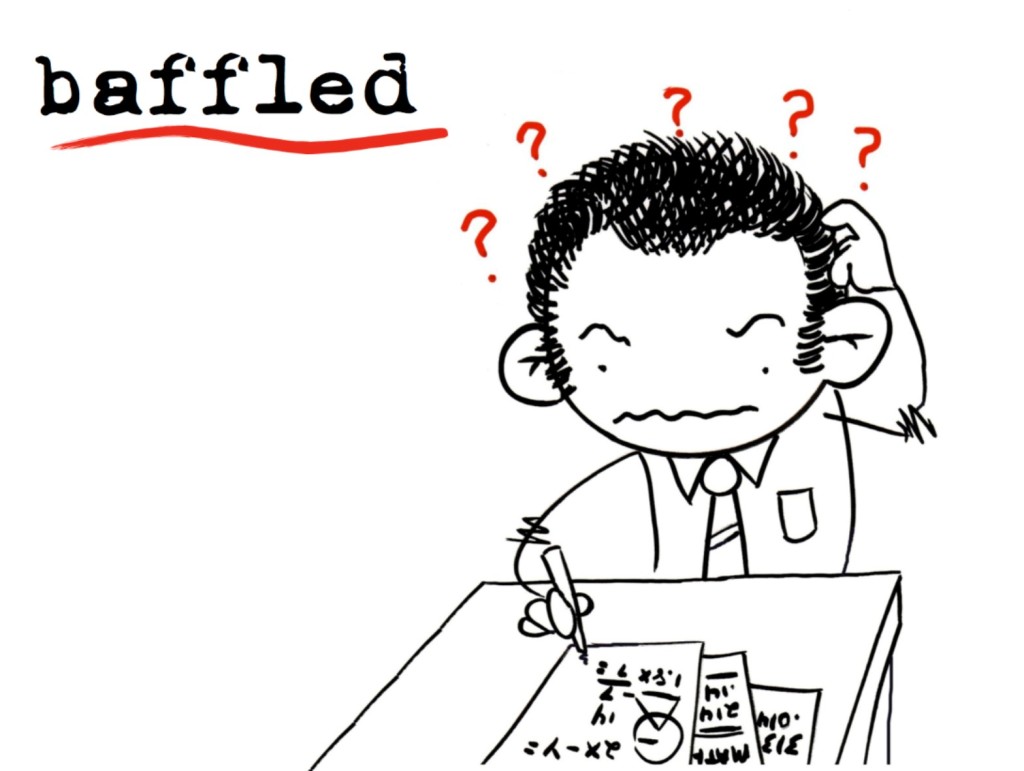Do you understand this?: ‘Oxidative switch drives mitophagy defects in dopaminergic parkin mutant patient neurons’. If you do understand it, you may be thinking “What’s the problem?”. If like me, you don’t, you may feel it’s a familiar issue. Why is this important? How can we make important information more accessible for all of us?
I recount this, from November 2020, not to criticise the European Parkinson’s Disease Association (EPDA) – whose complete tweet it was, and from whom I’ve read a lot of interesting stuff – but to give a simple example of a problem. In this particular case it felt like a foriegn language to me, and not one I understand. And I didn’t even know whether it was important for me to understand it! I replied: “Sorry. You what?”, then made my point about using as accessible language as you can, when you can.

Why is this important? If people living with Parkinson’s – or with any health condition – are truly to be partners in our own care, never mind at the centre of our personal teams, we need to be able to understand what’s being said and written. I believe we all need to take some responsibility in this.
The importance of getting complex information across in a clear, concise way was already on my longlist of topics for ParkyBoy. I was reminded of it recently. I follow Natasha Ratcliffe, who had tweeted that she was “a bit baffled” by the ‘Study summary’ of a research paper, published by National Institute for Health Research. I checked Natasha’s profile, which confirmed that she is Research Involvement Manager at Parkinson’s UK. She was brave, in her role, to say what she did publicly, and it was completely appropriate for her to do so. I knew that if she was baffled, the rest of us would have no chance!
In my working life I’ve done a lot of writing and editing, particularly about mental health, and about issues affecting older people. These are often complex issues, involving specialised language, with a great deal of jargon: ‘special words and phrases that are used by particular groups of people, especially in their work.’ (Cambridge English Dictionary). I am not someone who says “Never use jargon!”. I understand its role. But I know there are many things that can be done, purely in language terms, to be more inclusive to the-non specialised reader, including:
- don’t use Latin
- use simple language when you can
- use jargon only when necessary
- if you need to use jargon, introduce it and explain it the first time you use it
- introduce and explain initials and acronyms the first time you use them
The way information is structured and formatted also plays a crucial role in communicating effectively:
- use short sentences…
- …in short paragraphs…
- …with decent line spacing (not densely packed)
- use bulleted lists, either ‘ordered’ (numbered) or ‘unordered’ (like this list)
- align the text left (not justified)
- don’t use strings of capital letters
If you are involved in a health-related journal, and your published papers go against these guidelines, I ask you “Why?”. Have you stuck to an outdated format? Do you think it demonstrates credibility and importance? Would you like more readers? Could you modernise your style?
I really appreciate those that make a serious effort to get information across. A guy called Simon has been blogging about the Science of Parkinson’s since 2014. His goal?: “Very simple: to explain the science and research that is currently being conducted on Parkinson’s in plain English that even my non-scientific mother will understand.” To be honest, Simon’s mother must be better at understanding science than I am. I still find much of the content difficult.
But didn’t I say we all need to take some responsibility? I’ve got a pretty good bank of English vocabulary, but I know I have a huge block about scientific concepts and language. I tend to switch off and move on. So I must also try harder and seek to break my own patterns.
I’m asking people and individuals who provide information about Parkinson’s – in tweets and websites, articles and seminars, conferences and podcasts – to look at how you do this, and work out how you can make the information more accessible. In particular I ask that you give us a simple, short paragraph explaining what it’s about, in the most simple language, to help people like me get to first base – deciding that it may be important to us, so it’s worth putting in the time and effort to understand it.
In turn, if we get to that first base, I am challenging myself, and other people living with Parkinson’s, to try harder to understand what is being said, to help us take up that central role in our own ‘teams’.
Please, let me understand you!
Here are two helpful places to read more about accessible language and design:
Design for readability (Harvard)
‘How to write in plain English’ (Plain English Campaign)

rhank you, Parkky Boy, for scuch a clear and helpful contribution to this debate. I’ve been a writer and editor all my working life, and I agree with all you say – except possibly the premises around the importance of expert patients. I do wonder sometimes whether our carers want us to be involved: it’s time consuming, wearying,and irritating to have to start all your wrtings from first principles; to continually have to translate highly specific language into a vernacular. And, of course, it is demeaning to those in the priesthood, the gate keepers, to have to write down in front of their colleagues. What to do?
LikeLike
Thank you for commenting Kathryn. Yes, anyone who’s done much writing of any kind will probably agree that it’s more difficult to write simply and concisely. I think a big persuasion job may still be necessary to show the benefits of doing so.
LikeLike